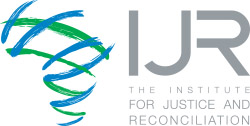By: Dr Ric Amansure
In South Africa, the “Blue Light Brigade” has been a subject of ongoing controversy and debate. These motorcades, characterised by flashing blue lights, are intended to ensure the security and smooth transportation of high-ranking government officials, dignitaries, and VIPs. However, for some time now concerns have been raised about their impact on road safety, abuse of power, and unequal treatment under the law.
Originating during the apartheid era, the Blue Light Brigade was used to signal the presence of government officials and law enforcement personnel, commanding respect on the roads. Today, its primary purpose is to facilitate the secure movement of important individuals such as heads of state and high-ranking officials. It’s important to note that the Blue Light Brigade is not a standalone entity but rather a term used to describe the collective group of law enforcement personnel and vehicles involved in the escorting and protection of VIPs. The composition and coordination of the unit depend on the specific requirements and protocols established by the relevant authorities, such as the SAPS and government security agencies.

However, the high speeds and disregard for traffic rules exhibited by convoy drivers have raised significant concerns about road safety. Tragic accidents resulting in loss of life have occurred as a consequence. Critics argue that the Blue Light Brigade is often associated with the abuse of power, with reports and allegations of VIPs and government officials flouting traffic regulations, engaging in reckless driving, and intimidating other road users. This behaviour undermines the principle of equality before the law and perpetuates a culture of impunity among the privileged few.
In response to public outcry, there have been calls for greater regulation and accountability within the Blue Light Brigade. Suggestions include implementing strict guidelines for speed limits, use of sirens, and adherence to traffic laws. Additionally, proposals have been made to improve driver training and impose severe penalties for violations committed by brigade members.
The South African government has taken steps to address the controversy surrounding the Blue Light Brigade. Efforts have been made to train convoy drivers in defensive driving techniques, road safety protocols, and responsible use of emergency lights and sirens. Improved coordination and communication between law enforcement agencies and the public aim to ensure smoother traffic flow during VIP movements.
However, the recent incident involving SAPS officers has sent shockwaves through the public and reignited concerns regarding the conduct of the Blue Light Brigade. Video footage capturing the incident surfaced, revealing a disturbing scene of armed officers engaged in a violent altercation with a Gauteng motorist and two others. The incident, believed to have originated from an on-road driving dispute, has raised significant questions about the training, discipline, and accountability of law enforcement officers within the Blue Light Brigade.
The video, widely circulated on social media platforms, depicts a distressing scene of excessive force being used by the officers. They can be seen physically assaulting the individuals involved, despite the absence of an immediate threat or need for such a level of aggression. The incident has left many members of the public shocked and outraged, as it raises concerns about the conduct and professionalism of law enforcement officers who are entrusted with maintaining peace and order.
In response, the Independent Police Investigative Directorate (IPID) has launched an investigation to establish the circumstances surrounding the altercation and the actions of the involved officers. The investigation aims to hold those responsible accountable and address incidents of police brutality that not only erode public trust in law enforcement but also undermine the credibility and effectiveness of the SAPS. It is crucial that the investigation is conducted thoroughly, transparently, and without bias. The findings and subsequent actions taken will serve as a critical benchmark for the accountability and reform of law enforcement practices within the SAPS and Law Enforcement agencies.
The Blue Light Brigade in South Africa remains a subject of controversy and debate due to concerns regarding road safety, abuse of power, and unequal treatment under the law. The recent incident involving SAPS officers highlights the pressing need for reforms and increased accountability within the unit. Striking a balance between security and the safety of all road users necessitates comprehensive measures, including clear guidelines, effective oversight mechanisms, training, and a culture of accountability. Addressing these issues is crucial to ensure that the Blue Light Brigade can fulfil its intended purpose while upholding principles of justice, fairness, and public safety.
The views and opinions expressed in the article are solely that of the author, and not the IJR.





